The Chrysler
Turbine Car
As
I sat in Miss Moses music class at Thomas Jefferson Jr High in 1964,
I heard a sound through the open window that was rare for the
valley, even at the airport. It was the sound of a jet engine,
and it was right outside the window. I looked out to the
corner of Quarrier and Morris Streets, and there.... at the light....
was the most amazing car I'd ever seen: It was the experimental
Chrysler Turbine car! It had a sound like a jet taking off,
and I would hear that sound many times from the music room, and
every time I had to get up to see it again. Miss Moses failed to
see what all the fuss was about.
|
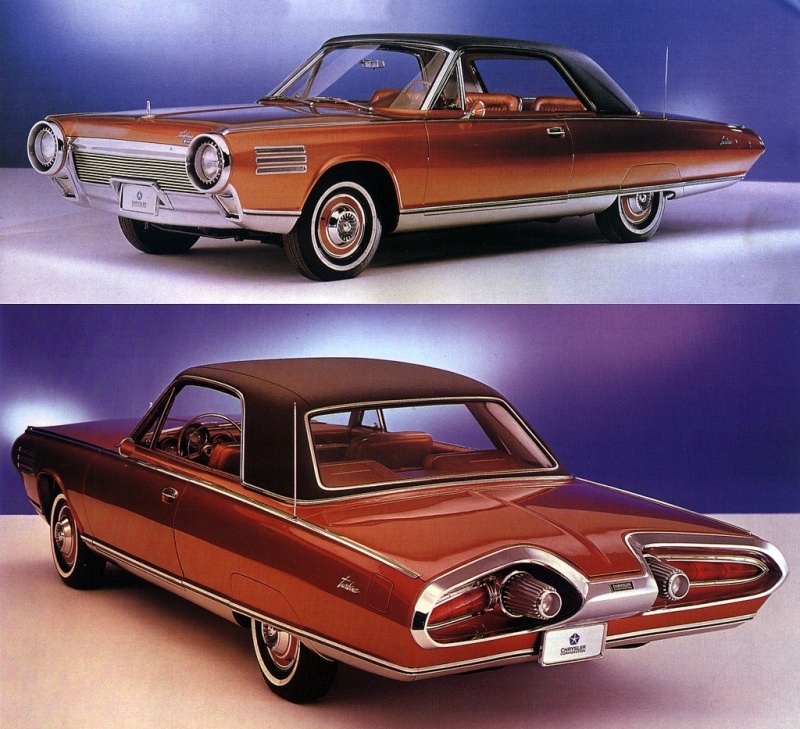
Could you blame me for
looking?
|
 The car would run on anything... including Moonshine.
The car would run on anything... including Moonshine.
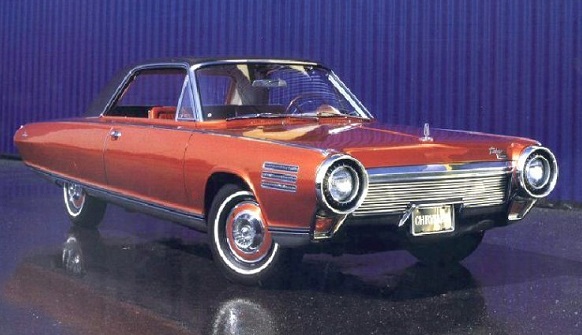
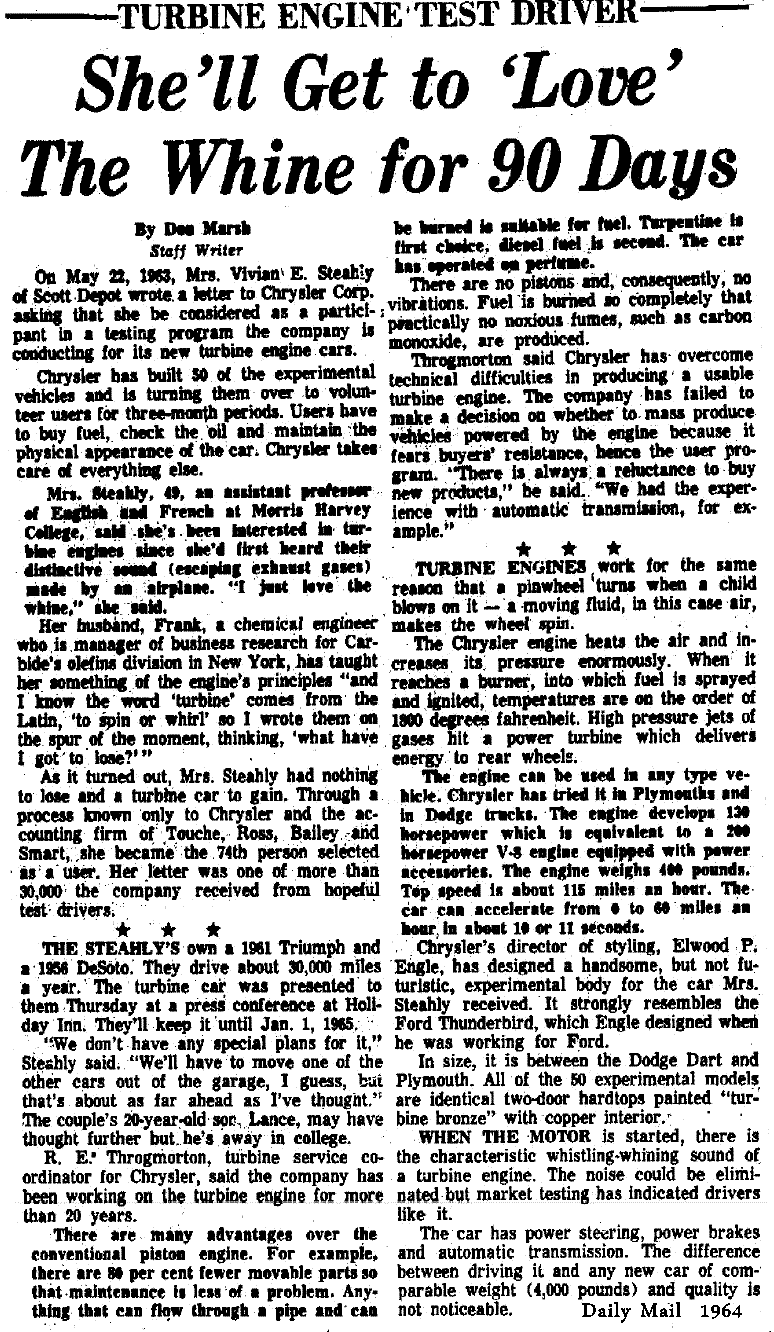
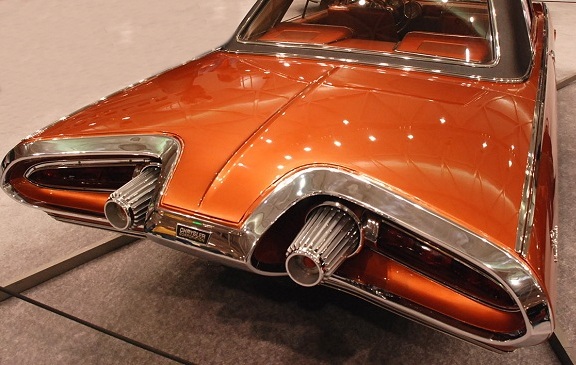
I'm happy to have witnessed this car on the streets
of Charleston.
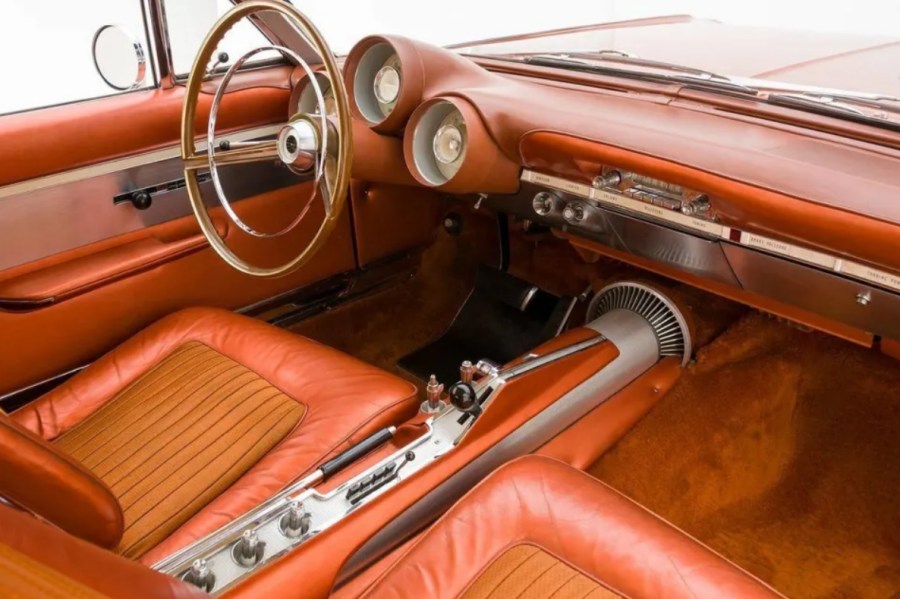
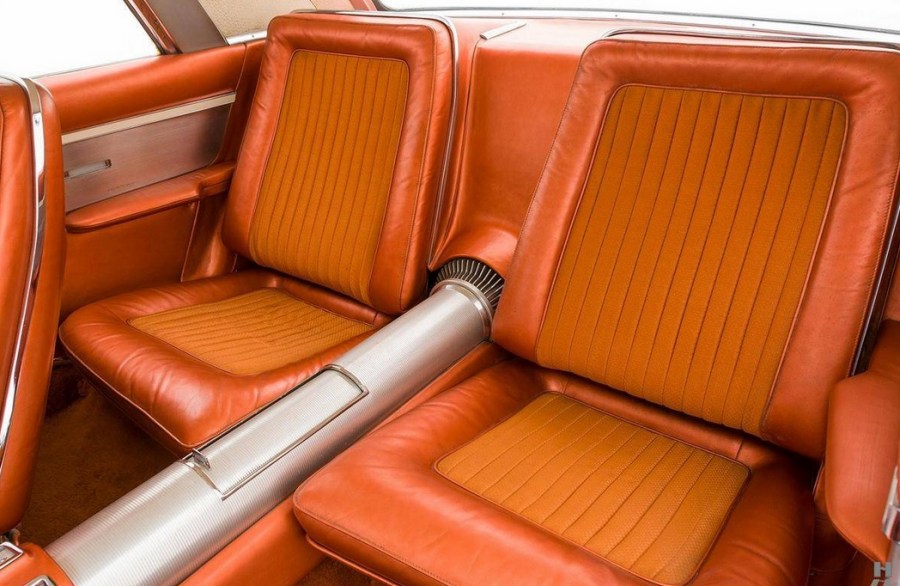
LISTEN
TO THE CHRYSLER TURBINE START UP
This is what I heard at the
stop light during school in 1964.
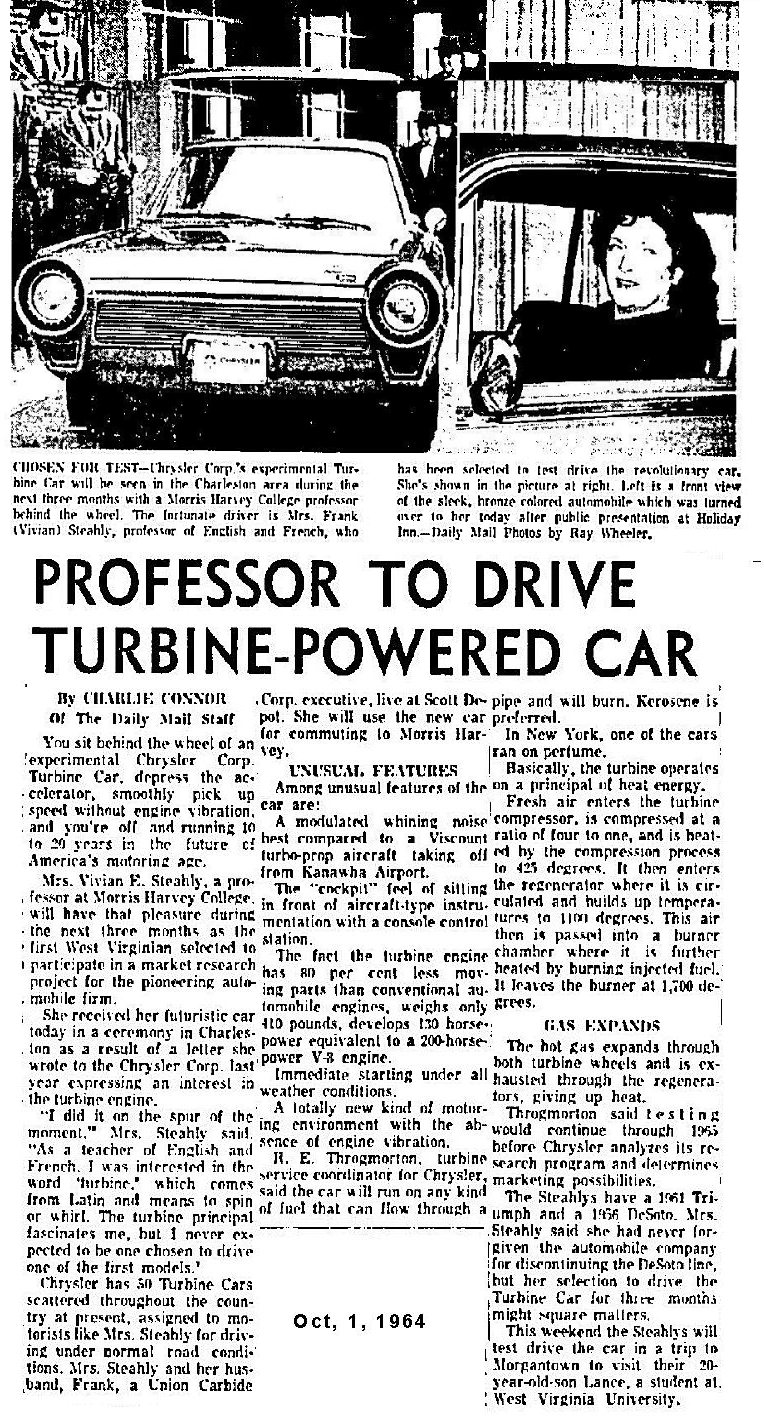
In 2021, a priceless Turbine went up for
sale....
With enthusiasm high, Chrysler announced in February
1962 that it would build approximately 50 turbine-powered cars for a
public real-world test program. Styling was done in-house, overseen by
the new design chief, Elwood Engel. Engel replaced Exner in 1961 and
introduced a more sophisticated, slab-sided design language, which he
honed while working at Ford – which explains the Turbine's passing
resemblance to a late 50s Ford Thunderbird. The jet-age motifs were
more subdued than the wild fins and chrome of the Exner era, and the
Turbine Car was understated yet distinctly elegant. To save on tooling
costs, Chrysler contracted with their longtime partners Ghia in Turin,
Italy, to build the body shells, which were then shipped to Michigan to
mate with their bespoke chassis. All except one were painted a unique
shade of bronze with a black vinyl roof and bronze interior.
Fifty-five Chrysler Turbine Cars were built, encompassing five
prototypes and 50 production cars. Chrylser opened the program to a
nationwide pool of applicants who vied for a chance to drive one of the
vehicles free of charge, for three months at a time over two years. It
allowed Chrysler to compile massive amounts of data and priceless
public relations from a relatively small pool of vehicles. After the
highly publicized test program, all 50 cars returned to Chrysler for
evaluation. Engineers crash-tested one prototype and, to prevent the
remaining lot from becoming “used cars” and tarnishing the project's
image, consigned 45 of the remaining production cars to a Detroit
scrapyard where they were summarily crushed and burned. While this
seems appalling today, it is not uncommon for a manufacturer to destroy
prototypes to protect their technology.
Unfortunately, the cars never really overcame shortcomings like poor
fuel economy, terrible emissions and destructive exhaust heat. The
Turbine Lab got off 55 Chrysler Turbine Cars during its research. Five
are in museums, two are owned by Chrysler, one is owned by Jay Leno and
this one is up for grabs. The rest were destroyed and burned to the
ground:
Thankfully, one Chrysler exec came up with the idea of setting a few
cars aside for static display in educational museums around the
country. Nine were spared, including three retained by Chrysler. At the
same time, six went respectively to the Museum of Transportation in
Kirkwood, MO, The Henry Ford, The Smithsonian Institution, the Natural
History Museum of Los Angeles (later the Petersen Automotive Museum),
the Detroit Historical Museum, and the Harrah Collection Museum of
Reno, NV. Today, all nine of the legendary Chrysler Turbine Cars
remain, yet only two are in private hands – one in Jay Leno's
Collection, and the other, chassis number 991231, is offered here for
the first time in over 30 years.
991231 was acquired by Domino's Pizza founder and noted car collector
Tom Monaghan. Frank Kleptz acquired the Turbine Car from Mr. Monaghan
in the late 1980s while at the AACA National Meet in Hershey. It was
not running at the time, though Kleptz did get spare engines along with
the deal. In the late 1990s/early 2000s, Kleptz got serious about
getting the Turbine Car up and running, and he enlisted the help of GE
Engine Services, who reproduced several essential precision parts and
aided in the rebuilding of the engine. While it has seen limited use
over the past decade, it remains operational and has recently been
test-fired, making it one of just a few running examples extant.
Cosmetically, the car is in beautifully well-preserved original
condition. The paintwork and bespoke trim are in excellent order, and
it wears original tires and color-keyed wheel covers. The orange-bronze
interior is relatively conventional in its layout, except for the
stylized center console with its unique controls and levers, lending
the car a distinctly space-age and purposeful character. It is
accompanied by a vast file of engineering drawings, technical
information, and historical documentation. The sale will also include a
spare engine and transmission assembly.
As one of only two Chrysler Turbine Cars in private hands, this is a
once-in-a-lifetime opportunity to acquire one of the most fascinating,
technically sophisticated American cars of the twentieth century. The
remarkable Chrysler Turbine Car was the pride of the Kleptz Collection,
and it will undoubtedly take center stage in its next custodian's
collection.
|
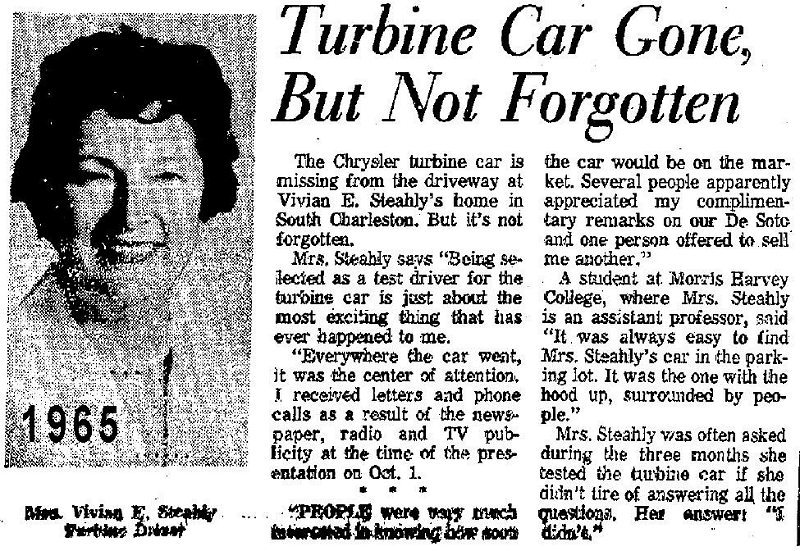
See more on this car HERE

Back
|








